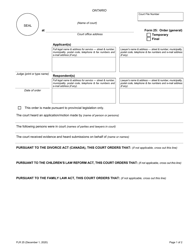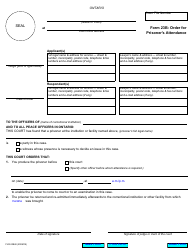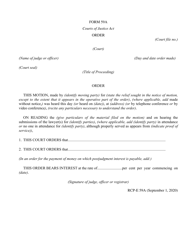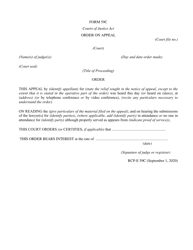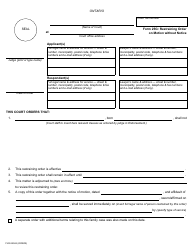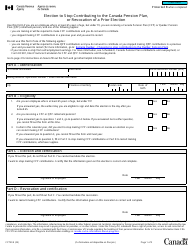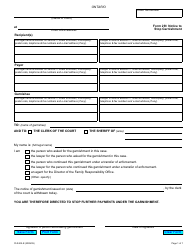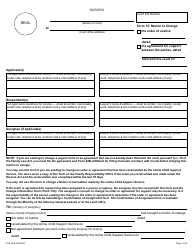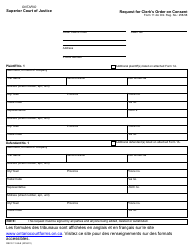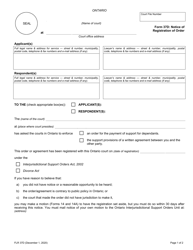Form 72C Stop Order - Ontario, Canada
Form 72C Stop Order in Ontario, Canada is used as a legal document to halt or stop certain activities or actions. It may be used in various situations, such as stopping a construction project, suspending the sale of securities, or preventing someone from driving. The specifics of the stop order would depend on the context in which it is being used.
In Ontario, Canada, the form 72C Stop Order is typically filed by the landlord or property owner to stop an eviction order.
FAQ
Q: What is a Form 72C Stop Order?
A: A Form 72C Stop Order is a legal document in Ontario, Canada that is used to stop the transfer or registration of a security.
Q: When can a Form 72C Stop Order be used?
A: A Form 72C Stop Order can be used when there is a dispute or concern related to a security that needs to be resolved before any transfer or registration takes place.
Q: Who can file a Form 72C Stop Order?
A: In Ontario, Canada, Form 72C Stop Orders can be filed by anyone who has a legal interest or claim in the security in question.
Q: How is a Form 72C Stop Order filed?
A: A Form 72C Stop Order can be filed with the Ontario Securities Commission (OSC) by completing the necessary form and paying the required fee.
Q: What happens after a Form 72C Stop Order is filed?
A: After a Form 72C Stop Order is filed, the OSC will review the order and may hold a hearing to determine if the order should be granted or dismissed.
Q: What are the consequences of a Form 72C Stop Order?
A: If a Form 72C Stop Order is granted, it prohibits the transfer or registration of the security until the dispute or concern is resolved. If the order is dismissed, the transfer or registration can proceed as planned.


